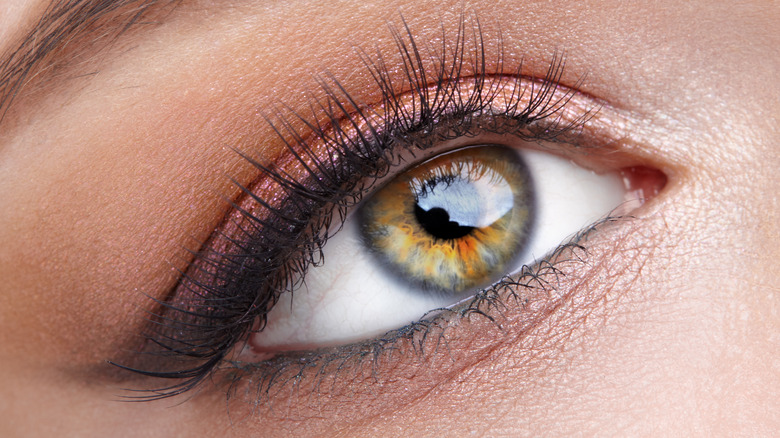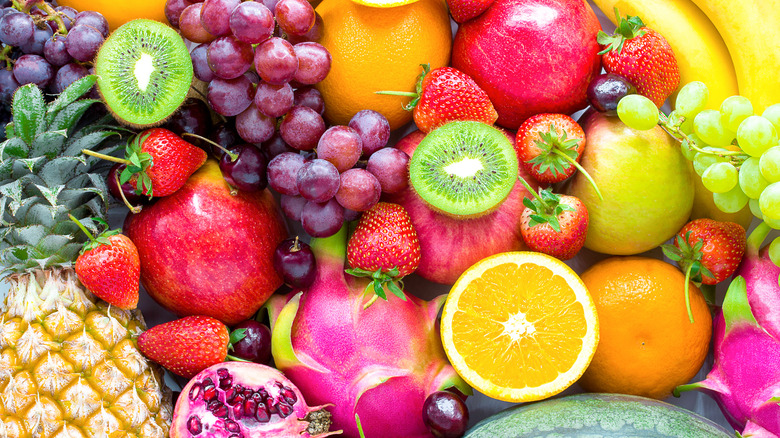If This Happens To Your Eyes, It Could Be A Sign Of Malnutrition
Maintaining a nutritious diet is vital for optimal eyesight and the overall health of your eyes. While a lack of vitamins and minerals will not change your eye color, it can lead to a variety of problems (via Livestrong). The good news is that eating a well-balanced diet can do wonders in terms of protecting your vision and the health of your eyes in general.
There is evidence that many specific eye problems — from retinitis pigmentosa, a serious condition that can lead to loss of sight, to common conditions like dry eyes — are linked to nutritional deficiencies. As a result, they may respond to improved dietary measures (via the Royal National Institute of Blind People). There have even been documented cases of people going completely blind from overindulging in junk food and not getting enough essential nutrients to protect their eyesight (via MSNBC). This suggests that malnutrition is directly detrimental to human eyesight. If you are having eye issues, you should talk to your doctor or ophthalmologist about what dietary measures may be beneficial.
Nutrients that can improve eyesight and eye health
While eating a balanced diet full of fresh vegetables and fruits, there are some specific compounds that have been identified as being specifically beneficial for eye health. Vitamin A, for example, is thought to have a slew of eye health benefits, according to the American Eye Association (AEA). It is thought to protect against childhood blindness and can potentially reverse night blindness in adults.
According to the Optometrists Network of New York, vitamin A plays a key role in maintaining the health of your eye's photoreceptors. However, there are several other nutrients that are also important for healthy vision. Lutein and zeaxanthin are antioxidants found in vegetables, like spinach and kale, and have been linked to lower incidences of age-related macular degeneration (AMD), uveitis, diabetic retinopathy, and cataracts. Vitamin C can also help slow vision loss and reduce the risk of developing cataracts, while vitamin E can prevent retinal degeneration and even blindness (via the Optometrists Network of New York).


